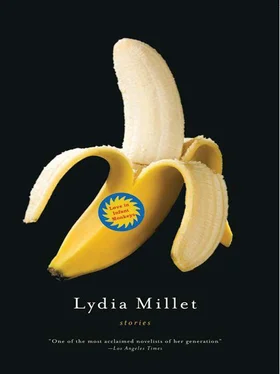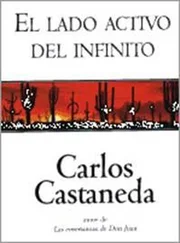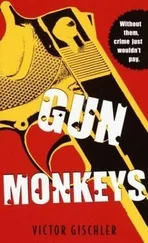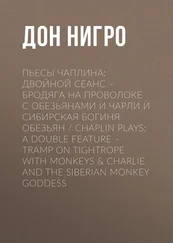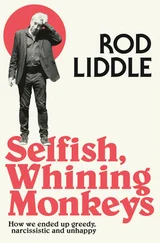“Why did you tell?” I asked. “You might have gotten away with it.”
I was sad it had come to this. Not for Marco — the one time I’d met him I’d known he was a vicious kind of person who more or less deserved for bad things to happen to him — but for her. I wished she could have just divorced him, a thing that went against her beliefs even more than murder. Because she wouldn’t get out of Sing Sing anytime soon, I was thinking. She would be an old woman by then.
“It didn’t matter,” she said. “I already saw the dove.”
I was looking at the groove in her upper lip and thinking how she was a better worker than I was. She worked without stopping and she always did exactly what they told her. If someone told her to wash the same wall six times, she would do it. Myself I would often stop cleaning and stare into the air, pretend I was floating in a cool lake or flying.
“The white dove?” I asked her. I figured she had pretty much gone crazy.
She said yes.
“I thought the white dove was dead,” I said in what I hoped was a gentle way.
“She was,” said Pia.
“Oh,” I said, and nodded.
“We were there on the steps,” she said, “with all of those birds. And in between them was the space where she wasn’t. Mr. Tesla showed me. ‘This was where she was once,’ he said. The third step from the top, I think. We just stood there and threw down the seeds. But I looked at the space. That was when I saw it.”
She grabbed my hands and pressed them. She was shaking, she was that agitated, and her hands were warm and damp.
“When Jesus died for our sins,” she whispered, “he turned into the universe.” She was hurrying to get the words out, as if she feared someone might come in and stop her from speaking. It all came out in a rush.
A minute later the guard came over and made us separate our hands. No touching was allowed. But by then I was almost relieved.
I never found out what happened to her in the end. I know she got an infection from some kind of internal injury; there had been rioting in the prison before she got there and it was still pretty rough. They beat her up worse than Marco had. She wrote and told me she was sick, and I sent a letter to her but it came back to me. By then I wasn’t cleaning anymore. I had saved my money for secretarial school and worked as a waitress in the evenings. I slept the rest of my hours away and had no time for friends, absent or otherwise. I thought of the house I would live in one day, with its flower garden and light shining forth from small golden windows.
The prison said she had been transferred, but the second prison had lost track of her too, as though she had never been there.
For me she did not disappear. I had her words and I could never shake them; I had her love for Tesla and his love for the bird.
My own love, it has seemed to me, has only ever been a love of feathers. However hard it tries, it never gets beneath.
She told me Jesus was the world. The sun was God’s eye, she said, the oceans were the water of his body, the rivers were the veins carrying his blood. Did I know that? The grasses of the field were his hair and the trees were his lungs, the doves and the birds and the animals were wishes of his heart. Each one a piece of his longing. The blood had run out of Jesus’s wounds, she said, and never stopped running. It ran into the oceans, over which the sun set.
All of this was Jesus and was God.
So did I see what that meant? Dead and alive were the same thing, she said. Dead and alive, they were exactly the same.


HARRY HARLOW HAD A general hypothesis: Mothers are useful, in scientific terms. They have an intrinsic value, even beyond their breast milk. Call it their company.
In this hypothesis he was bucking a trend in American psychology. For decades experts on parenting had been advising mothers to show their children as little affection as possible. Too much affection was coddling, and coddling weakened a child. “When you are tempted to pet your child,” said a president of the American Psychological Association in a speech, “remember that mother love is a dangerous instrument.” This school of thought ran counter to what was believed by those not indebted for their child-rearing strategies to a rigorously monitored testing process. But it was dominant in the scholarship. To refute it, Harlow decided, the value of love would have to be demonstrated in a controlled experimental setting.
He worked long hours, seldom leaving his laboratory. With his experiments he made a name for himself, appearing on television programs and traveling the country on speaking engagements. He was seen as a rebel and an iconoclast. He spoke boldly of mother love, calling it “contact comfort.” He stressed its value to emotional health.
But he spoke harshly of his test subjects. “The only thing I care about is whether a monkey will turn out a property I can publish,” he said. “I don’t have any love for them. I never have. How could you love a monkey?”
To know how love works, a scientist must study its absence. This is simple scientific method; Harry admitted it. The suffering of lesser beings is often the price of knowledge. As he put it, “If my work will save only one million human children, I can’t get overly concerned about ten monkeys.”
Others were doing bold animal experiments at the same time, in the fifties, when Harry started, and after. Rats were dropped in boiling water, cats pinned down for months until their legs withered, dogs irradiated until their skin crisped, monkeys shot in the heads and stomachs or immobilized to have their spinal cords severed. When it came to the treatment of research animals, Harry was squarely in the mainstream. Only his willingness to speak bluntly was avant-garde.
He gathered disciples around him, young women and men who would continue his work, and decades later he would still be revered by psychology. While acknowledging the problem of what some might call animal cruelty, later scholars would view his collateral damage as a necessary unpleasantness. His chief biographer, a woman journalist, described him as a rose in a cornfield.
He was a high-functioning alcoholic, and there were long periods in his life when he was rarely sober. He had wives — first one, then another, then the first one again. He had two sets of children he never saw.
Harry Frederick Harlow had been born Harry Frederick Israel. Around the time of his doctoral dissertation he had changed his last name, not because he was Jewish — for he was not, in fact, Jewish — but because the name Israel sounded Jewish, and this made it hard to secure a good job. He did not dislike Jews; indeed, he admired them for their intelligence and their education. But others in academia had certain prejudices. A famous professor who was also his first mentor did not wish him to continue to be mistaken for a Jew, so Harry deferred to him.
It was a minor accommodation.
One way to prove the hypothesis was to take a newborn monkey away from its mother and never give it back. Put it in a bare box, observe it. Anxiety first, shown in trembling and shaking; then come the screams. Watch it huddle, small limbs clutching. Make careful notations. Next, construct a wire mannequin that holds a milk bottle. See if the baby thinks the mannequin is its mother. When it does not think so, give it a mannequin draped with terry cloth, but no milk. See it cling to this milkless cloth mannequin.
Читать дальше
